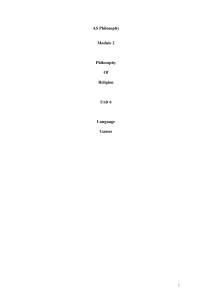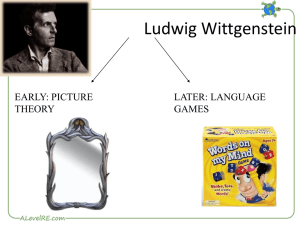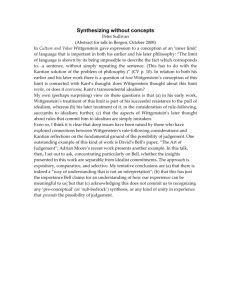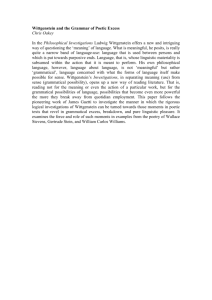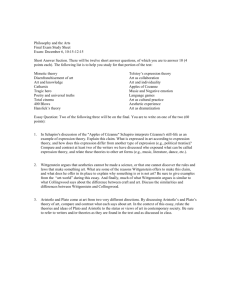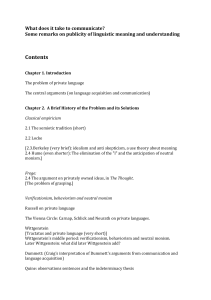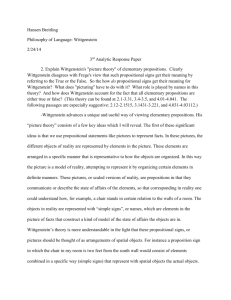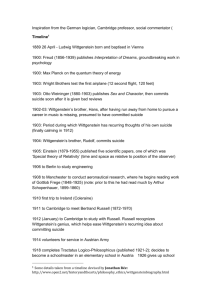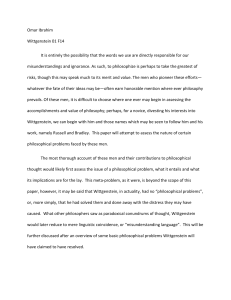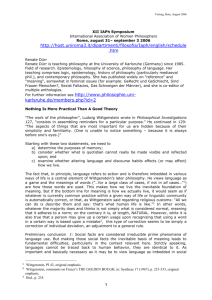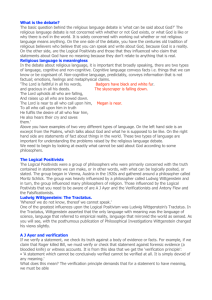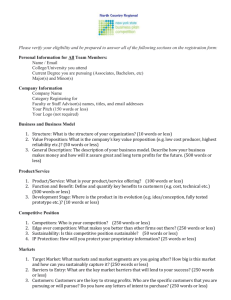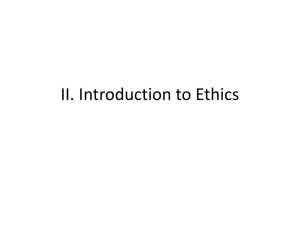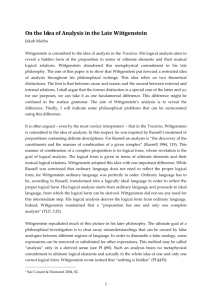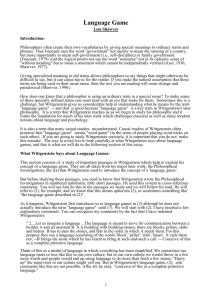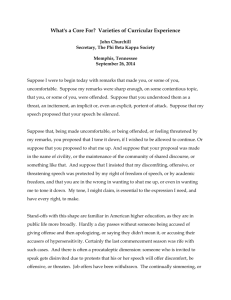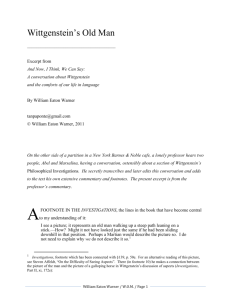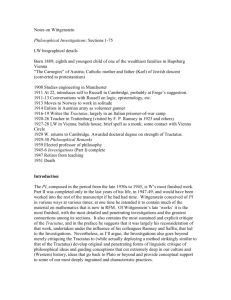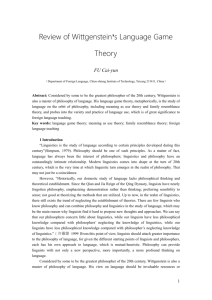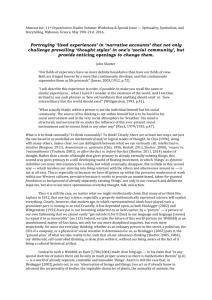Analytic response paper
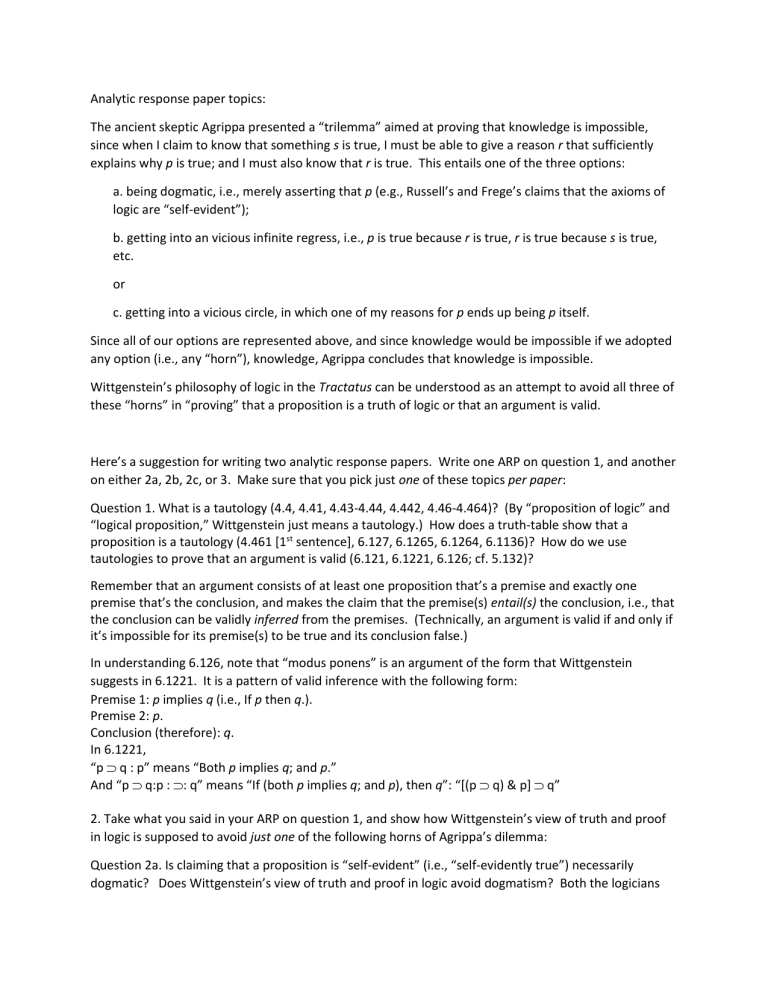
Analytic response paper topics:
The ancient skeptic Agrippa presented a “trilemma” aimed at proving that knowledge is impossible, since when I claim to know that something s is true, I must be able to give a reason r that sufficiently explains why p is true; and I must also know that r is true. This entails one of the three options: a. being dogmatic, i.e., merely asserting that p (e.g., Russell’s and Frege’s claims that the axioms of logic are “self-evident”); b. getting into an vicious infinite regress, i.e., p is true because r is true, r is true because s is true, etc. or c. getting into a vicious circle, in which one of my reasons for p ends up being p itself.
Since all of our options are represented above, and since knowledge would be impossible if we adopted any option (i.e., any “horn”), knowledge, Agrippa concludes that knowledge is impossible.
Wittgenstein’s philosophy of logic in the Tractatus can be understood as an attempt to avoid all three of these “horns” in “proving” that a proposition is a truth of logic or that an argument is valid.
Here’s a suggestion for writing two analytic response papers. Write one ARP on question 1, and another on either 2a, 2b, 2c, or 3. Make sure that you pick just one of these topics per paper:
Question 1. What is a tautology (4.4, 4.41, 4.43-4.44, 4.442, 4.46-4.464)? (By “proposition of logic” and
“logical proposition,” Wittgenstein just means a tautology.) How does a truth-table show that a proposition is a tautology (4.461 [1 st sentence], 6.127, 6.1265, 6.1264, 6.1136)? How do we use tautologies to prove that an argument is valid (6.121, 6.1221, 6.126; cf. 5.132)?
Remember that an argument consists of at least one proposition that’s a premise and exactly one premise that’s the conclusion, and makes the claim that the premise(s) entail(s) the conclusion, i.e., that the conclusion can be validly inferred from the premises. (Technically, an argument is valid if and only if it’s impossible for its premise(s) to be true and its conclusion false.)
In understanding 6.126, note that “modus ponens” is an argument of the form that Wittgenstein suggests in 6.1221. It is a pattern of valid inference with the following form:
Premise 1: p implies q (i.e., If p then q.).
Premise 2: p.
Conclusion (therefore): q.
In 6.1221,
“p
q : p” means “Both p implies q; and p.”
And “p
q:p :
: q” means “If (both p implies q; and p), then q”: “[(p
q) & p]
q”
2. Take what you said in your ARP on question 1, and show how Wittgenstein’s view of truth and proof in logic is supposed to avoid just one of the following horns of Agrippa’s dilemma:
Question 2a. Is claiming that a proposition is “self-evident” (i.e., “self-evidently true”) necessarily dogmatic? Does Wittgenstein’s view of truth and proof in logic avoid dogmatism? Both the logicians
Bertrand Russell and Gottlob Frege created systems of formal logic that used basic truths, i.e., axioms.
And the only reason they gave for these axioms’ being true is that they are “self-evident.” For
Wittgenstein’s criticism of this, see Tractatus section 5.1363 (replacing “obvious” with “self-evident” and
“obviousness” with “self-evidence”), 5.4731, and 6.1271.
Question 2b. Does Wittgenstein’s view of truth and proof in logic avoid a vicious infinite regress? Here, use Lewis Carroll’s “What the Tortoise Said to Achilles” in order to explain the vicious infinite regress.
Also use Tractatus sections 5.132. or
Question 2c. . Does Wittgenstein’s view of truth and proof in logic avoid a vicious circle?
Question 3. Take your APR on question 1, and look at passages 6.113 and 6.375. So what is
Wittgenstein’s “philosophy of logic,” mentioned in 6.113? That is, under what conditions is a proposition necessarily true? (This philosophy of logic is what we’ve called Wittgenstein’s basic demand.) Give an example of a proposition at a given level of analysis that needs to be further analyzed in order to satisfy Wittgenstein’s philosophy of logic. The example of “the broom is in the corner” would be a good one. So would “Barack Obama is not a Barack Obama.”
